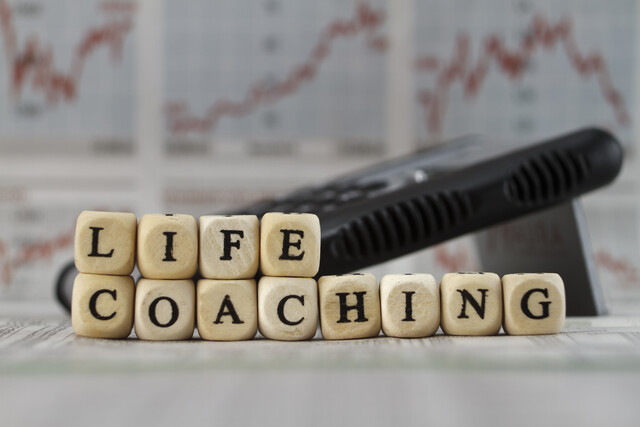Rather than rehashing all of the information you've already heard about weight loss and exercise, this article will focus on listening to your body. When you are your own life coach, just as it is imperative to be honest about your dreams and goals, it is likewise imperative to be honest about what your body is telling you. Our bodies communicate with us 24/7, but sometimes it is simply quieter than other times. When you come down with the flu, your body becomes very loud, demanding rest and fluids. Should you develop breast cancer, your body tells you that something may be wrong by developing lumps. When you stub your toe on a leg of the kitchen table, your toe becomes so loud that you often end up actually expressing the pain vocally as well.
Eating is a key area of listening in to your body � the human body craves nutrients and a multivitamin, while helpful, just is not going to cut it. Your body also wants water; oftentimes, it wants more water than you can even imagine. But you will find, when you start giving your body what it wants (as opposed to what your taste buds want), it will respond positively.
Exercise is another area that we often consider as important to keeping our weight down, but the fact is we all need to exercise our bodies regardless of our weight. Getting regular exercise doesn't have to be expensive, nor does it necessarily need to take any time out of your schedule! For many of us, our lives are physical enough and we simply need to kick it up a notch to get it to count as exercise. If you garden, challenge yourself to get as much done as possible in a specific time frame. If you are cleaning house, put on some music and go faster than normal. If you like to be social, join a walking group or look into local sports teams.
Now, many of us have additional challenges to listening to our bodies and getting the right nutrition and exercise our bodies need. Those with chronic illnesses, special physical needs, and more often face significant obstacles when it comes to these areas. If you struggle with these issues, there is a positive flipside: those with chronic illnesses, disabilities, or other physical challenges, often are far more tuned in to their bodies to start with.
For those with chronic or long-term illnesses
Listening in to your body presents special challenges because you often struggle with mixed communications � you may know that your body wants exercise, but alternatively, that same exercise may increase your pain or decrease your ability to fight off infections. Your illness will likely cause extra stress on your mind and heart as well. Know that there is a lot of support out there for you. If you cannot find a local support group, consider starting one; you could also go online where you are sure to find a group for you.
Mind: Blocking Out the Darkness, Letting in the Light
Everything.
Stress plays a tremendous role in our mental and physical well-being. Guilt and shame can be just as destructive to the mind as schizophrenia. Anger and hate fester until they take over the person that you are. Disappointment and frustration can cause long-term resentment. Receiving cruel or unjust treatment can generate a lifetime of distrust and victim mentality.
It is easy to see why so many of us walk around with emotional scars. As your own life coach, you must try to interpret events objectively, be honest about past hurts that you are hanging onto, and decide what and when to let go. Some hurts cannot or shouldn't be forgotten, nor must you forgive. But you can recover and heal yourself while still holding others accountable for the situations they have caused. If you have no one to blame but yourself, work on forgiving yourself. None of us are perfect and you will struggle to move forward until you admit the choices you've made that have caused harm and then forgiven yourself for it.
|
Activity Make a list of the hurts, disappointments, and frustrations you are still holding onto. Some of these may be small while others may encompass your whole life. Identify if they make you angry, hurt, lost, overwhelmed, etc. Whatever the issue, list the primary reason you are still hanging onto the pain. Now you will determine whether or not any of these hurts need to be discussed with someone else. Sharing your feelings and addressing issues head-on can help limit the frequency of such injuries being committed. As your own life coach, what is absolutely necessary is for you to prepare yourself for any possible reaction (or lack thereof). You cannot control others. For example, imagine that you have been holding on to a cruel comment that was made during an argument with your sibling. Moreover, you feel that they should know how hurtful it was and that you've been hanging onto that pain but do not want to anymore. Your sibling, upon hearing this, may apologize, may get angry, may bring up past hurts you've inflicted on them; there is almost no limit to the possible reactions. You have to prepare yourself to be able to say it and then be ready to let it go regardless of the reactions of others. It is now time to let these hurts go. Obviously, it doesn't mean you suddenly do not care but rather that you are committed to trying to live genuinely to who you are rather than to past actions that may have defined you. There are numerous ways to symbolically let these hurts go; chief among them are the following:
|
Old hurts and disappointments, however, are only part of the issue. The struggles and frustrations you see every day can also take hold and end up having more power over your life than you want. Everything from office gossip to a fight with your spouse can bring the hurt, anger, and frustration back in, even after you've worked so hard to rid yourself of these negative emotions.
To maintain and attack new issues as they come, there are habits you can develop that will help you stay mentally calm. A few ideas include:
-
Journaling briefly but on a consistent basis, making note of your emotions and how they relate to things that happened that day.
-
Spend some quiet time in meditation or reflection. You may journal or not during this activity. The goal is for you to identify what disrupts your happiness and focus on putting it into perspective.
-
Read a book that will give you guided meditations or address specific issues that you may be continuing to struggle with. The Resources and References page will supply a few of the most respected titles.
-
Create a space (or several) where you can spend some alone time decompressing. Whether that means closing your office door for 15 minutes where no one can come in or taking a long hot bath after you put the kids to bed, give yourself a little mental break on a regular basis.





























